#Transitconnect
Report: Ford Transit Connect Confirmed Dead
On Tuesday, Ford confirmed that the Transit Connect would be removed from the North American market after the 2023 model year. Rumors had circulated that the small van would soon be relegated to Europe – with reputable outlets citing its regional demise back in the summer of 2022. However, this is the first time the company has commented on the matter publicly.
Report: Ford Killing Transit Connect
While not as popular as the full-sized Ford Transit, the smaller Transit Connect makes an excellent vehicle for small business owners and families that want something that offers an abundance of cargo space but is still easy to park. Though it doesn't seem that enough of those people existed in North America because the automaker has reportedly opted to make the model a European exclusive after 2023.
Buy/Drive/Burn: The Cheapest Passenger Vans in America for 2021
We’ve been on a cheapskate (or value, if you prefer) kick lately at Buy/Drive/Burn. We’ve covered the cheapest new sedans and trucks on sale in America for 2021, and today we tackle everyone’s favorite type of vehicle: vans. But these three aren’t just any plain cargo vans, they’re passenger vans you can use to haul around your whole family.
Ford Transit Connect Diesel Engine Dead on Arrival
When the updated Ford Transit Connect debuted, Ford showed off a fancy new 1.5-liter turbodiesel to power it. While the company said it would be late availability, it turns out that the company decided that it wouldn’t put it into production at all.
Car and Driver initially reported the decision, with a Ford spokesperson citing a lack of demand for the reason for putting it into production. Considering the premium price that the diesel engine would command, plus rising fuel prices, it’s not hard to see why buyers wouldn’t ultimately be interested in the engine.
2019 Ford Transit Connect Wagon Review - The Clock Strikes Van Time
Welcome to the least hip car segment – the minivan. It’s what our parents drove, right? Nobody wants to be as tragically uncool as their parents, even as they themselves become parents.
Might I, an experienced parent, suggest something to the millennials and hipsters who are starting to reproduce? Consider getting back to the minivan genre before it becomes cool again. Be the parent who values utility and comfort over the overstyled, overstuffed crossover that every other new parent rushes out to buy. The moment you ease a rear sliding door open with one hand while swinging the bucket-style baby carrier right into the seat with the other is a revelation, especially after dealing with narrow-opening traditional doors found on sedans and SUVs.
In other words, it’s van time. Be the envy of the other new parents. Be different. And take a good look at all your options, because beyond the usual suspects lies this 2019 Ford Transit Connect Wagon. It has some surprising features that make it stand out.
Cab, Forward: Ford Introduces Hybrid and Diesel Taxis
The next time you’re in a new town and decide to hail a cab instead of opening Uber or Lyft on your phone, there’s a chance you may find yourself in one of Ford’s new fleet offerings.
Two new options are now available through the Blue Oval: an EcoBlue-powered Transit Connect and a Fusion Hybrid Taxi. The latter is apparently purpose-built for livery service, and includes a few bits from the 2019 Police Responder Hybrid Sedan — news that’s sure to please Joliet Jake and Elwood Blues.
2019 Ford Transit Connect: Cure for the Common Crossover?
When Ford launched the Transit Connect in North America in 2009, it was little more than a budget-friendly hauler for small business owners who needed a small van to help with their blossoming flower-delivery service. By the second generation, it received new engine options and became decidedly more passenger friendly, but remained light on features and refinement. Still, if you put a gun to the heads of a lot of car experts and asked them to pick a do-anything small vehicle, the Transit Connect would probably be on their short list.
Updated for its third generation, Ford is further enhancing the model’s versatility and comfort. However, Ford appears to be marketing the Transit Connect toward a very specific demographic — baby boomers.
While we think the Transit van’s smaller sibling probably has a far broader appeal than just the AARP crowd, things like a hip-high slide-in driver seat (with more comfortable foam), plenty of room for the grandkids, and an ultra-low load height do seem like desirable features for aging shoppers. You’d think Ford would market the Connect a viable alternative to crossovers.
Ford Recalls F-250s Over Roll-away Issue and Just About Everything With a 1.6-liter Ecoboost for Fires
Ford Motor Company is recalling F-250 pickup trucks sold in North America due to the potential for roll-aways after the vehicle’s automatic transmission is placed in park. This is the third major recall announced by Ford in the last few days. The other two were due to engine fires in 1.6-liter Ecoboost models and faulty door latches on Fiestas, Fusions, and Lincoln MKZs.
The at-risk trucks include 52,600 2017 model year F-250 trucks equipped with 6.2-liter gasoline engines produced at its Louisville, Kentucky assembly plant. So far, Ford has said it is unaware of any injuries or accidents caused by the roll-away issue, though it urges owners to visit their dealer at the earliest opportunity.
Ford Files Trademark Applications for 'Transit Courier' and 'Courier' in U.S.
Have you ever sat in a Ford Transit Connect and said to yourself, “Gosh, I like this, but it’s just so darn big!“? Well, if Ford’s latest trademark filings are any indication, the Blue Oval might soon have exactly what you’re looking for.
According to the United States Patent and Trademark Office, Ford filed trademark applications for two names — “Transit Courier” and “Courier” — on July 22, 2016, hinting at possible Fiesta-based, B-segment vans for North America.
We're In a Cargo Van Renaissance
Wake up, ladies and gentlemen, and listen to the happy news: we are in an automotive renaissance. The kind of renaissance that comes around but once every decade or two; the kind that’s accompanied by new designs and new powertrains and new features and new competition.
I am referring, of course, to the cargo van renaissance.
I’m not sure if you’ve realized it, but that’s exactly what’s going on around us: a renaissance of cargo vans. An explosion of new models, and new segments, and new powertrains, and new features, and new designs. When we look back years from now, we will all agree that the cargo van segment was forever changed by the years 2014 and 2015.
Ford Transit Best-Selling US Van In December
Ford may soon have a new member in its royal family, as the 2015 Transit is asserting its dominance upon Flower Shop Lane.
My Fellow Americans, Our Long National Game Of Chicken May Be Coming To An End
I come to praise the chicken tax, not to bury it. In exchange for the short-term consequence of a few people paying too much for Toyota trucks with insta-rust beds, this country managed to acquire a pretty substantial infrastructure to build “foreign” automobiles while still providing jobs to Americans. It even helped the Japanese automakers, who managed to survive the 1985/1986 spike in the yen without abandoning the US market because they were largely in the process of moving production to the Southern states.
In recent years, however, the 25% tariff has come to be ever-so-slightly irrelevant, primarily affecting buyers of the Ford Transit Connect who can’t figure out why there are wrench marks on the floor of their brand-new cargo vans. And now it might be gone for good.
First Drive: 2013 Nissan NV200 Compact Cargo Van (Video)
When Nissan invited me to sample the Versa Note hatchback, tucked away in a corner was the new-to-America Nissan NV200 compact cargo van. No, this isn’t a relative of the NV2500 that started out our commercial week in 2012, instead it’s a purpose-built cargo hauler [very] loosely based on the underpinnings of the Nissan Cube. You may have also seen the NV200 shown as NYC’s “Taxi of Tomorrow” choice, but this NV is all about hauling. (Strangely enough that’s why it makes a good taxi.)
Chicago Auto Show: 2014 Ford Transit Connect Wagon
If you were an early adopter of Ford’s compact cargo hauler, news of the 2014 Transit Connect may upset you. Rather than letting the old baby-Transit languish in America like Ford did once upon a time with thee Focus, the new Euro van is coming to America later this year. With new engines, new transmissions and a corporate grille, should you put your purchase on hold?
Commercial Week Day Four Review: 2012 Ford Transit Connect
Americans with well worn passports often amaze their less-traveled friends with miraculous tales of a land full of tiny, fuel-efficient vehicles, expensive gasoline and miniature cans of Coke. (Really, those Coke cans are awesome.) The story inevitably ends with, “I wish I could buy X here”. Ford has so far been the most receptive to these cries, with the tasty Euro Focus, Fiesta (and soon the Fusion/Mondeo) to our shores. But what about some fuel-efficient love for the man-in-the-van? That’s where the Transit Connect fits in according to Ford. TTAC is no stranger to the Transit Connect with our own Sajeev Meta taking a spin in 2009. However in this review, we’ll attempt to compare the Connect to the other commercial options on the market while channeling our inner Joe-six-pack.
The Connect is off to a good start, with sales climbing from 8,834 in 2009 to 31,914 in 2011 proving there is a market for a mini-bread-van. The small hauler even accounted for 21.4% of Ford’s US van sales in 2011. Meanwhile, sales of the ancient and thirsty E-Series increased from 85,735 units to 116,874 from 2010 to 2011. By comparison, GM shifted just 89,211 vans in 2011. The reason behind the sales jump is obvious: high gas prices and no efficient cargo haulers to compete with it. But does that mean you should own one?



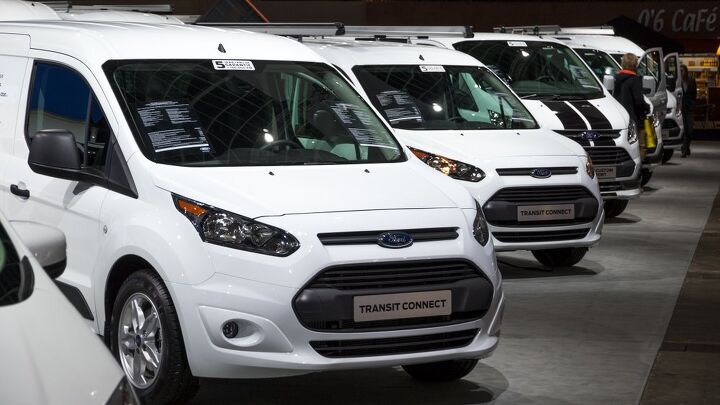
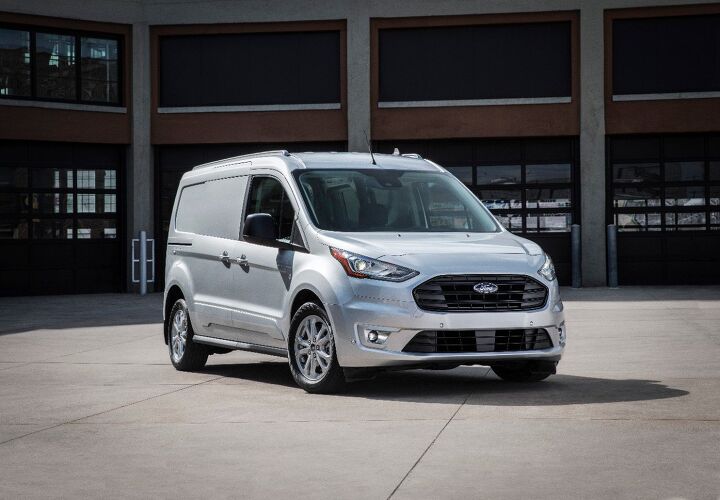
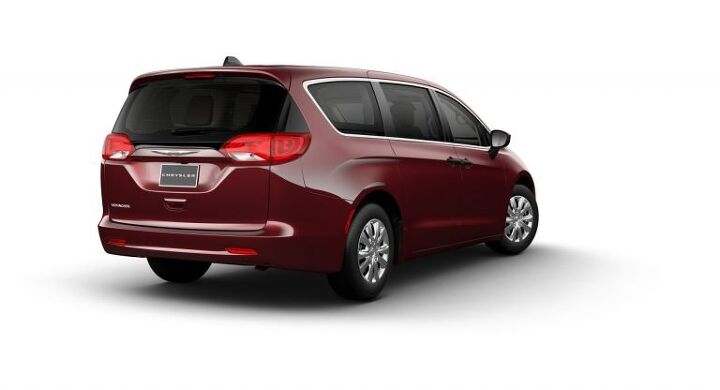


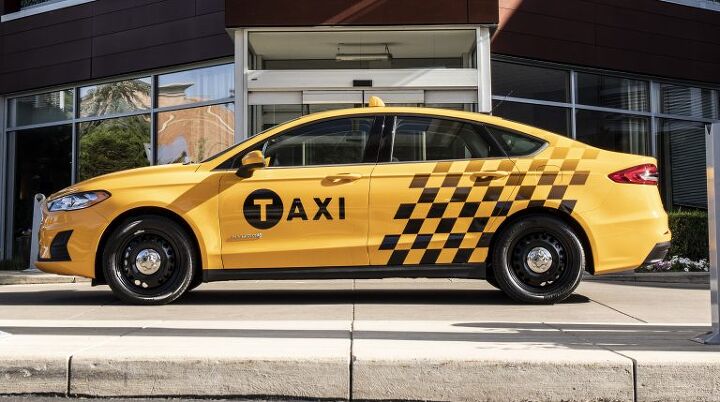


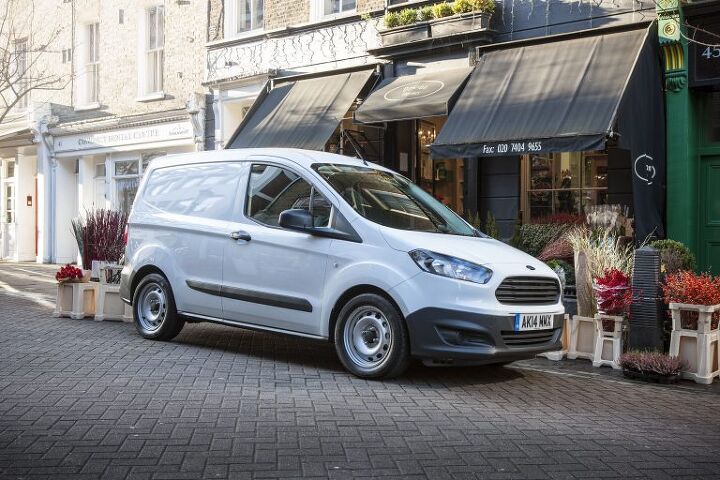
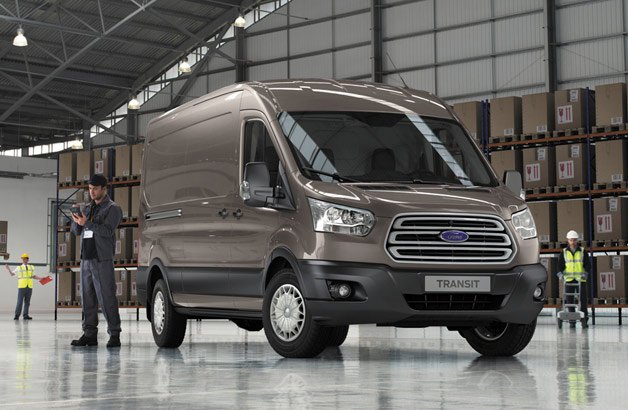
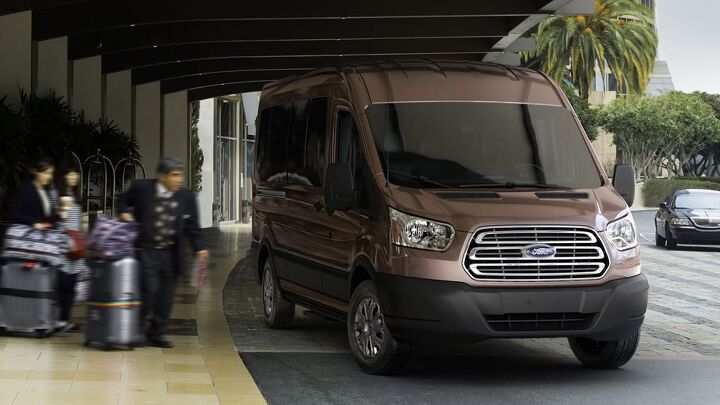

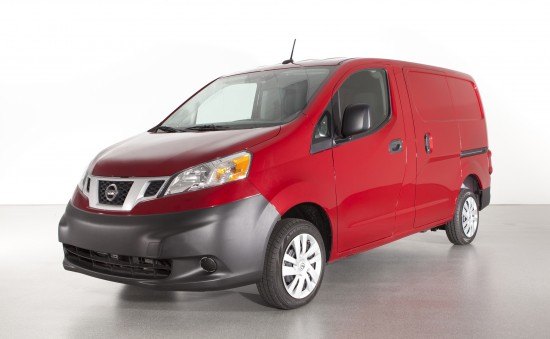
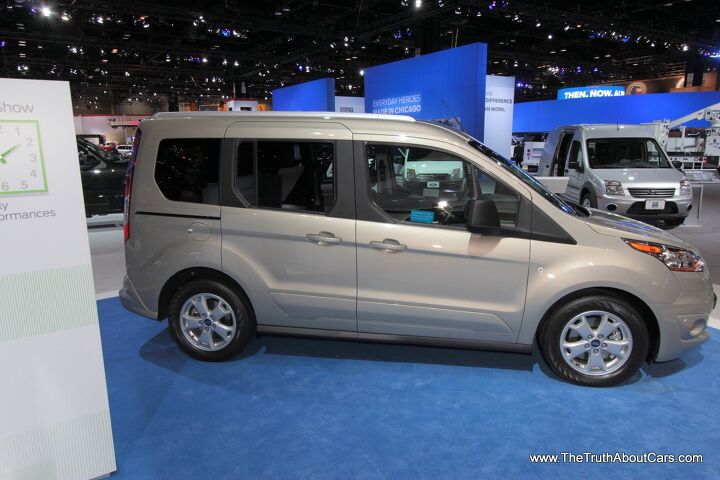
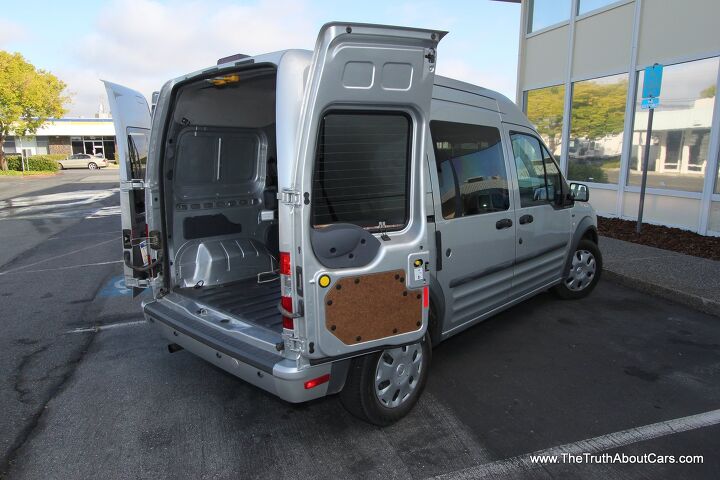












Recent Comments